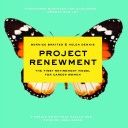Retire on Less Than You Think

CHICAGO (Reuters) – Now that the baby boomer age wave is crashing ashore, Americans are retiring by the boatload. About 10,000 of us will turn 65 every day for the next 17 years, the Pew Research Center tells us. If someone on your gift list is hitting the beach this holiday season, a little guidance is in order – and that’s a stocking-stuffer opportunity. Here’s a list of recommended reading on some key issues facing retirees, distilled from my ever-more-crowded bookcase full of volumes on the topic.
The list is highly subjective, of course – and it reflects my enthusiasm for basic blocking and tackling on financial matters and a holistic approach to retirement that goes far beyond money.
Retire for less. Many Americans are worried they won’t have enough money to retire. That’s a savings problem, but it also reflects a fundamental lack of realistic planning about spending. Former New York Times retirement columnist Fred Brock published “Retire on Less Than You Think” (Times Books) in 2007, and the message is just as relevant today: Most of us can retire on far less than the usual rules of thumb suggest, if we’re willing to get creative. His big themes are extracting equity from homes and downsizing to cheaper locations, but Brock lists plenty of other ways to simplify life and reduce expenses.
Maximize Social Security. Social Security will provide the bulk of regular income for most retirees, but deciding when to file can make a huge difference in the size of monthly payments. One of the best resources on this topic is “Social Security Strategies: How to Optimize Retirement Benefits” (self-published, 2011) by William Reichenstein, a professor at Baylor University who has written extensively on Social Security planning, and William Meyer, a financial-services industry veteran. They are the co-founders of SocialSecuritySolutions.com, an excellent planning tool, and they know the rules of Social Security inside and out. The book explains the importance of delayed filing, how strategies can differ for married couples and single people, and benefits for spouses and survivors.
Maximize other income. The decline of traditional pensions means more Americans will need to convert savings into a steady stream of retirement income. Who better to address that challenge than an actuary turned author and blogger? Steve Vernon’s “Money for Life: Turn Your IRA and 401(k) Into a Lifetime Retirement Paycheck” (Rest-of-Life Communications, 2012) is packed with specific strategies for generating income from interest and dividends; guidance on making systematic withdrawals; and tips on how to use annuities wisely.
Find work with a purpose. Many Americans will be working past traditional retirement age, launching second careers or working part-time after formal retirement – and for some, it’s about much more than a paycheck. The “encore career” movement is continuing to gain ground among millions of baby boomers who want to create a career out of a passion — and a desire to make a positive social contribution. For a great overview of the concept and spirit of encore careers, check out “The Big Shift: Navigating the New Stage Beyond Midlife” (PublicAffairs, 2012) by Marc Freedman, founder and chief executive officer of Encore.org. For a nuts-and-bolts look at launching an encore career, consider Marci Alboher’s “The Encore Career Handbook” (Workman Publishing, 2012).
Find regular old work. Retirees seeking a plain old paycheck will love Kerry Hannon’s “AARP Great Jobs for Everyone 50+” (Wiley, 2012). Hannon is a journalist with expertise in careers, retirement and personal finance, and her book is packed with useful advice, best practices and resources for those over age 50 who are looking for employment in the wake of the Great Recession. She paints the big picture, explaining how the employment market is changing and how workers need to adjust – but the book is very tactical, offering an exhaustive list of the best jobs for older workers in specific industries and how-to strategies for finding work.
Figure yourself out. Many retirees face an identity crisis once they’ve separated themselves from the world of work. “Life Reimagined: Discovering Your New Life Possibilities” (Berrett-Koehler Publishers, 2013) is part of a broader initiative from AARP aimed at helping people at midlife and beyond connect with a new sense of purpose and community. The project’s intellectual godfather is Richard Leider, one of the country’s best-regarded executive coaches and author of eight books on finding purpose in life. He co-wrote this volume with Alan M. Webber, co-founder of Fast Company magazine. The book outlines the “Life Reimagined” model (a branded program sponsored by AARP) and can serve as a gateway to broader involvement with the project, which offers an online community, tools and videos.
Helen Dennis and Bernice Bratter think women face some unique challenges redefining and reimagining themselves, and they explore the issues in “Project Renewment: The First Retirement Model for Career Women” (Scribner, 2008). Dennis is an expert on aging, employment and retirement; Bratter is a marriage and family therapist. Their book is based in part on the authors’ dialogues with members of the “Project Renewment” support groups that they helped start in Southern California.
Figure out your spouse. If you’re married, retirement isn’t a solo journey. “The Couple’s Retirement Puzzle” (Lincoln Street Press, 2011) explores how couples can get on the same page for retirement happiness, and stay there. Authors Roberta K. Taylor and Dorian Mintzer are experienced psychotherapists and coaches. Learn about the 10 “must-have” retirement conversations for couples about money, changing roles and identity, sex, family relationships and health.
By Mark Miller
For more from Mark Miller, see http://link.reuters.com/qyk97s
(Follow us @ReutersMoney or at http://www.reuters.com/finance/personal-finance. Editing by Douglas Royalty)
Category: Blog



































